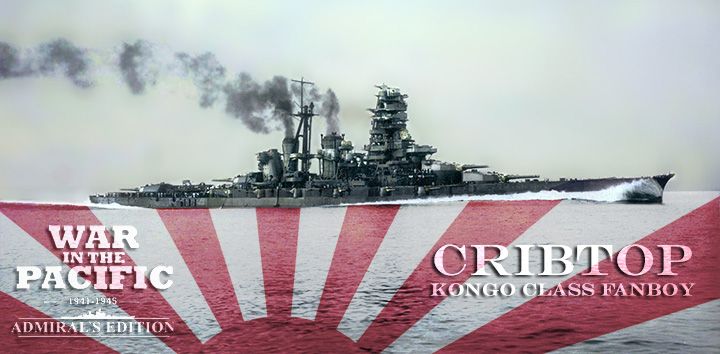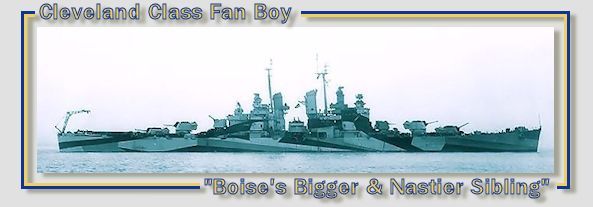Nemo121
Posts: 5821
Joined: 2/6/2004
Status: offline

|
Recently I've been doing a lot of thinking about evil, good and apathy and reading and re-reading Niemoeller and Edmund Burke. Back in 1944 my grandfather, who was in the resistance, was found bringing a bomb into a German-controlled factory. The Gestapo took him first, tortured him to find out who his compatriots were ( he never told me everything they did but suffice it to say the bits he thought were suitable for a teenager were putting cigarettes out on his skin, electrocuting him and pulling out his fingernails with pliers.... He's dead now but I sometimes wonder just what else they did he felt was too rough to tell me about. ). They only had him for an evening so he didn't break - especially since he figured he was dead anyways so he didn't want to go out having given them any information.
Late in the evening a Wehrmacht officer came in and basically told the Gestapo that since the factory was producing material for the Wehrmacht any saboteur trying to sabotage it was, by rights, subject to Wehrmacht interrogation. As my grandfather told it the Gestapo only agreed to give him up on the basis that the Wehrmacht officer would be personally responsible for any future sabotage by my grandfather. The Wehrmacht officer took my grandfather into his staff care and as they were driving away told him that as far as he was concerned my father was obviously guilty BUT he couldn't abide the mistreatment by the Gestapo and so rescued my grandfather from torture and being shot. He also told him that since he was now personally liable if my grandfather did anything he was sending my grandfather to a concentration camp so he couldn't get into any trouble and end up having the Wehrmacht officer shot for his troubles  . .
My grandfather spent about 6 months in a concentration camp ( not a POW camp, he'd been in one of those in 1940 to 42 ) before he and other suspected guerillas were sent to another camp. They didn't know it at the time but the camp was a place for "undesirables" and one of those places where the SS worked their "undesirable" non-Jewish/gypsy/homosexual prisoners to death. Men died through accidents and starvation but nothing wholesale.... until the very end of the war when in an effort to remove the evidence of what had gone on the SS began bayonetting and pitchforking the prisoners to death - it saved bullets that way. They began early one morning and by noon they had completely killed off one of the barracks. By early afternoon they were on the 3rd of the 5 barracks in the complex, the one my grandfather was in. At this time they got news that the Americans had reached the town nearby and decided to escape. In that day about 50% of the people in the camp had been bayonetted or pitchforked to death. If the Americans had delayed 6 hours everyone would have been dead. Instead they risked their lives, sped on and rescued the survivors ---- and captured most of the guards and delivered them back to the prisoners. There were no weapons, no trials and no survivors amongst the guards.
I don't want to correlate this too much with recent events on the forum except to say that some recent events have had me thinking about good, evil and apathy and, once again, thinking about how rare it is for people to be willing to risk themselves in order to stand against something and how lucky we as a species and world were 70 years ago that there were good men and women on ALL sides who stood up at great risk to themselves and did what they felt was humane and right. I wouldn't be here without a Wehrmacht officer who risked his life to save the life of a guerilla fighter, an enemy, whom he KNEW was trying to bomb a factory he was responsible for OR without American ( and by extension other Allied troops ) who fought through Europe at great cost to life, limb and their mental health and saved my grandfather ( and thousands and millions like him ) from the fate the nazis had planned for them.
Recent events have just made me think how truly exceptional and rare those kinds of people were and are and how lucky we were ( and I was ) that enough of them existed back then to make a difference. My grandfather was but one man who was saved but I'm sure basic human goodness on all sides saved others too even in the midst of some of the worst evil the world has ever seen.
Anyways, I chose the thread title both because of those recent thoughts and how they apply to my story ( the Good guys - aka Allies are doing something unto the Japanese ) and also because I watched some recent documentaries and movies about Nanking and, when I took the Allied side in this Armaggedon scenario, got to thinking of how I would crush Japan quickly and how doing so would require a rapid operational tempo with high losses for a short period of time. Thinking about these losses made me think about how lucky we were that men from the continental USA, Britain and elsewhere would travel thousands of miles to fight and die to defeat a country whose army engaged in such atrocities.
I don't do big emotional stuff often but tonight I've been thinking about it. We really owe these young men and their sacrifices for a greater good. Of course no side in war is perfect and every side commits atrocities and errors etc but, in the Pacific, it is clear that while the Allies weren't absolute angels they were, in comparison to the Japanese Army, truly Good Men Doing Something About Evil.
We are very lucky they existed and did what they did.
And now onto the game....
Armaggedon Mod.
Game commences September 1st 1945.
I'll play as Allies, my opponent as the Japanese.
My opponent has asked for the first week to be a sitzkrieg to allow him to get units into position etc. I've agreed.
HRs: No night bombing by 4-engineds below 15,000 feet. No day bombing by 4-engineds below 20,000 feet.
Usual FatR proviso. If he posts in this thread I will inform my opponent, if he posts in my opponent's AAR or PMs him, he will inform me. That's simply necessary to avoid FatR choosing to ruin another game by breaching FOW.
The night-bombing and FatR rules are the only two HRs. Apart from that if it is sneaky, dastardly and effective then you get bonus points for doing it 
Basic Premise of the Plan:
1. Japan is an island state. If I can destroy its navy and merchant fleet I can remove its freedom of manoeuvre.
2. The ONLY threats to the US Navy are the IJN ( surface warships, submarines and suicide torpedo boats ) and IJNAF and IJAAF air attacks. If I can reduce the IJN to rubble and destroy the IJNAF and IJAAF I can give the Allies freedom of manoeuvre.
3. If Japan cannot manoeuvre ( due to destruction of its navy ) and the Allies can manoeuvre freely ( due to destruction of the IJAAF and IJNAF as viable threats ) then the Allies can pick and choose when and where to land negating Japan's interior lines due to far speedier naval transport.
So, the priorities will be:
1. Destruction of the Japanese merchant fleet in order to prevent wholesale evacuation of Chinese and Korean theatre IJA formations into mainland Japan.
2. Destruction of the IJN.
3. Destruction of the IJAAF and IJNAF anti-shipping strike groups.
4. Destruction of IJNAF and IJAAF fighter groups in order to give B-29s free rein over Japan and in order to limit the number of planes available for escort duty.
Four-engined bombers were not used tactically often and I think they are best used strategically. So, in-game I'll try to use four-engined bombers strategically to bomb factories, strategically important ports and strategically important airbases which I think might be holding IJAAF and IJNAF strike groups. Obviously, for some of the most important atoll attacks use of four-engined bombers will be justified but I don't want to advance behind a carpet of B-29s destroying everything before me. There may have to be violence but it shouldn't be entirely artless.
In terms of the Allied ground forces. Well, obviously, I'm going to make an effort to hold Okinawa just in case my opponent tries something crazy like an invasion. I am also planning some rather unorthodox deep strikes designed to dislocate his entire war plan on the day that we begin the fight for real - September 8th. He will have a plan and it will be designed to disrupt whatever he thinks my plan is. However I have one huge advantage. He has only ever seen how I play when outnumbered and disadvantaged and on the inferior side. I haven't played on the superior side for about 3 years IIRC. This means that I believe he will underestimate how deeply, quickly and forcefully I will try to strike.
It is all going to be very Soviet. Very late 1970s/early 80s and with lots of reference to vertical envelopment, dislocation and exploitation into the operative and, ideally, strategic depth. I'm really looking forward to having the necessary tools to cobble together some proper operations instead of the threadbare, half-baked stuff the Japanese and early Allies can only do.
The sheer amount of air and sea transport available to the Allies is dizzying. Ideally my goal is to end meaningful resistance by the end of November, 11 weeks into the game, with the IJN, Japanese merchant fleet, fighter defence and naval strike capacity of the Japanese forces destroyed. If necessary I'll land in mainland Japan in December 1945 and carry through a land invasion of the mainland then. Not quite home by Christmas but, hopefully, not far off it.
I believe the key to the initial stages will be:
1. Dislocating the Japanese defensive plan.
2. Pinning the Japanese naval forces in place in order to destroy their ocean-going capability by the end of September.
3. Trapping and destroying the Japanese merchant fleet.
4. Engaging the Japanese along each axis, including unexpected axes to engage in the maximum possible attrition. Normally I'd have to phase operations due to limited troops, airpower and sealift. In this scenario I won't have to phase them at all unless I want to. I have enough I can run 4 different Strategic Directions at full operational tempo without compromise. OUCH!!!!
5. Disrupting the Japanese transition to higher-performance fighters in order to maintain the performance differential between Allied and IJAAF and IJNAF fighters. If the Japanese get the J7W or Ki-94 into production my F6F5s will be mincemeat in dogfights.
6. Maintaining an operational tempo of such intensity and such loss rate in an ever-worsening strategic position that my opponent sues for peace.
7. It will be crucial to cut China off from Korea, Korea off from mainland Japan, Hokkaido off from the rest of Japan and the islands off from support from mainland Japan. By piecemealing the Empire up like that I can more readily defeat it.
The more I look at the Allied OOB the more I feel like a kid in a candy shop....
< Message edited by Nemo121 -- 6/20/2011 1:12:40 AM >
_____________________________
John Dillworth: "I had GreyJoy check my spelling and he said it was fine."
Well, that's that settled then.
|
 Printable Version
Printable Version

 .
. 
















 New Messages
New Messages No New Messages
No New Messages Hot Topic w/ New Messages
Hot Topic w/ New Messages Hot Topic w/o New Messages
Hot Topic w/o New Messages Locked w/ New Messages
Locked w/ New Messages Locked w/o New Messages
Locked w/o New Messages Post New Thread
Post New Thread